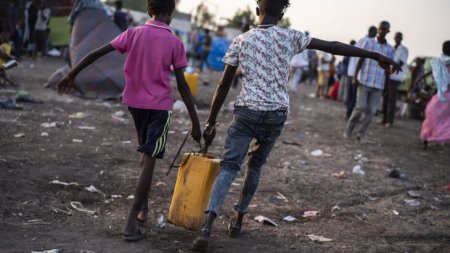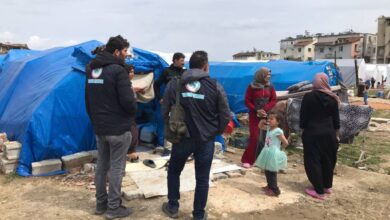
As fighting in Ethiopia’s Tigray region and other areas in the north of the country forces more people to flee their homes, Ethiopian refugees in the camps in south-east Sudan face increasingly dire living conditions. Food, clean water, shelter and sanitation are desperately insufficient, and an increasing number of people suffer from malnutrition and diseases like malaria and hepatitis E. The onset of the rainy season worsened the situation and some refugees are choosing to undertake dangerous migration routes or move to other areas of the country.
“Everyone is just trying to make their life better, but youth are in a bad situation and they’re turning to drugs and alcohol. They’re starting to have psychological problems. There are also all the children separated from their families who are here alone,” said Daniel, a 23-year-old student living in Um Rakouba camp.
Besides the harsh living conditions, thousands of refugees are unable to contact their family members with telecommunication networks in many areas of the Tigray region down. Many people suffer trauma and emotional distress, following months of not knowing if they will be reunited with their spouses and children.\ Since the beginning of the Tigray crisis, the International Committee of the Red Cross (ICRC) facilitated nearly 22,200 successful phone calls between refugees and their families. However, it registered over 20,000 unsuccessful phone calls in the same period, meaning that thousands of people could not receive news from home.
Source: ICRC

